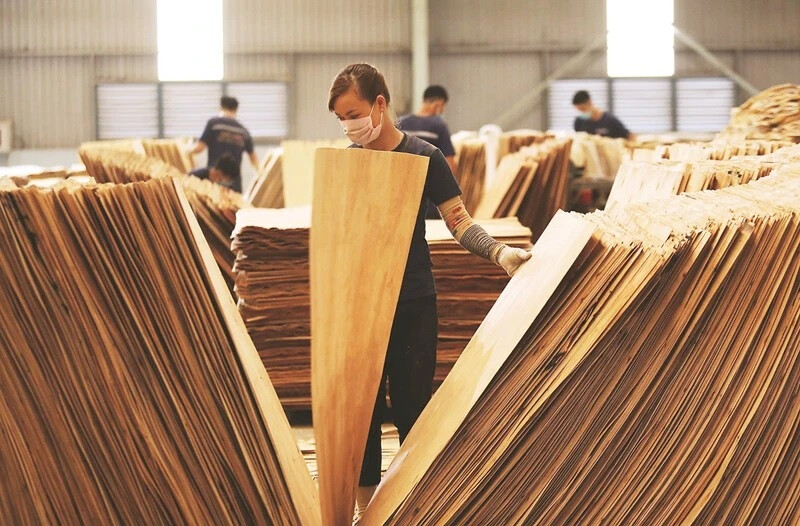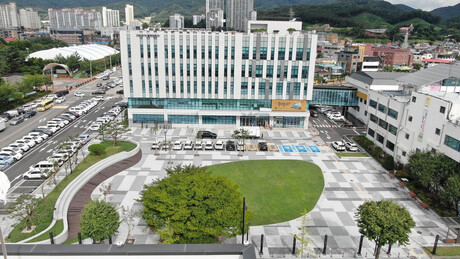
In April, Paraguay's plywood exports hit an annual high for the second consecutive month, reaching 2,769 tons, a 5.45% increase from the previous month. In monetary terms, exports totaled $2,315,784, showing a 3.91% increase.
Asunción, May 29, 2025 – Paraguay's timber industry is showing remarkable growth. Plywood, in particular, recorded outstanding export performance last April, injecting vitality into the national economy. According to a report from the National Forest Institute (Infona), Paraguay's plywood exports last month amounted to 2,769 tons, a 5.45% increase from March, marking a new annual high for two consecutive months. Export revenue also reached $2,315,784, a 3.91% increase from the previous month, demonstrating robust growth.
Diversifying Key Markets and the Value of Plywood
Paraguayan plywood is primarily exported to the United Kingdom (769 tons), the United States (635 tons), and Chile (420 tons). These countries have established themselves as major consumers of Paraguayan timber products, significantly contributing to the increase in exports. Plywood is a composite material made by gluing thin layers of wood together, characterized by alternating grain directions to enhance strength and stability. Due to these characteristics, it is widely used in various industries such as construction, furniture manufacturing, and packaging, making it highly demanded globally.
Over the past five years, the average annual plywood export volume was 2,472 tons, valued at $1,653,121. April's export performance significantly surpassed this average, clearly demonstrating the continuous growth trend of Paraguay's plywood industry. This indicates that the quality and competitiveness of Paraguayan plywood are being recognized in the global market.
Sawn Timber, Another Star Product, Also Performing Well
In addition to plywood, sawn timber is another major export item driving Paraguay's timber industry. In April, sawn timber exports totaled 2,562 tons, generating $1,813,761 in revenue. Palo Santo wood, in particular, showed an exclusive presence in this sector, accounting for 35% of export volume (897 tons) and contributing 68% of total export value ($1,236,766), proving to be a key driver of sawn timber exports.
Palo Santo is a tree native to the tropical regions of South America, highly valued for its unique aroma and beautiful grain, making it suitable for high-end furniture, crafts, and essential oils. With increasing global interest in sustainable forest management and eco-friendly products, the demand for specialized timber like Palo Santo is also growing. Paraguay, with its abundant forest resources, is securing competitiveness in this premium timber market.
Future and Challenges of Paraguay's Timber Industry
Recent export data indicates that Paraguay's timber industry is experiencing solid growth and has become a crucial pillar of the national economy. The continuous increase in demand for Paraguayan timber products in the international market is a positive sign. This suggests that Paraguay's abundant forest resources and advancements in timber processing technology are creating synergy.
However, several challenges must be addressed for sustainable growth. First, stronger government policies and enforcement are needed to prevent illegal logging and deforestation. The international community is becoming more environmentally conscious, and regulations on illegally produced timber are tightening. Transparent and responsible forest management is essential for ensuring the long-term competitiveness of Paraguay's timber industry.
Second, the advancement of processing technology for value creation is required. Rather than relying solely on raw material exports, investments in technology development for producing a wider range of finished products, beyond plywood and sawn timber, are necessary. This can increase product value and create more jobs.
Third, efforts to diversify export markets and explore emerging markets are also important. The current export structure, concentrated in specific countries, can be vulnerable to changes in the international economic situation. Therefore, a strategy to discover new markets and expand export channels is needed. Active marketing and strengthened cooperation, especially in high-potential markets such as Asia and Europe, are required.
Fourth, strengthening forest certification systems is crucial. International forest certifications (e.g., FSC, PEFC), which verify that timber products are sustainably produced, are becoming essential for entering overseas markets. Paraguay's timber industry should more actively adopt and adhere to these certification systems to enhance international trust.
The Paraguayan government and relevant industries must address these challenges and formulate strategies for sustainable growth. The growth of the timber industry can have positive impacts not only on economic benefits but also on local community development and job creation. It remains to be seen whether Paraguay can leverage its current growth trajectory to become a major player in the global timber market.
[Copyright (c) Global Economic Times. All Rights Reserved.]





























